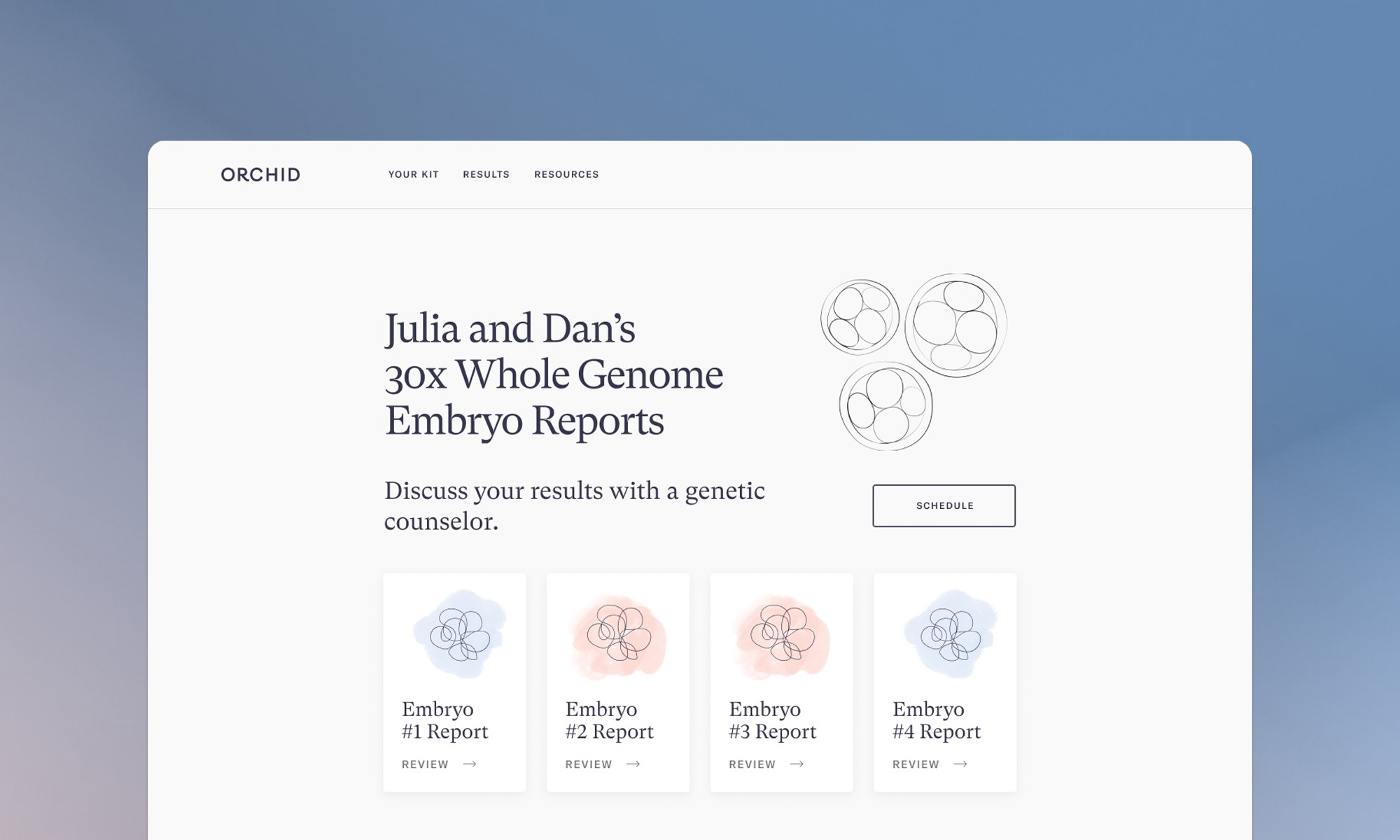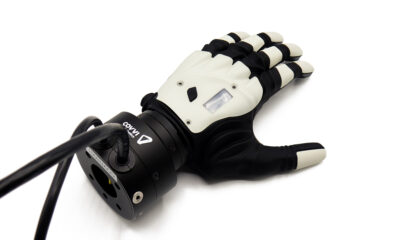News
Orchid Plans To Find Out What’s Wrong With You Before You’re Born
According to CEO Noor Siddiqui, the company isn’t on a mission to make designer babies, but aims to beat genetic odds and relieve suffering.

Each day, around 400,000 babies are welcomed into the world. However, among those, a growing number will experience some kind of birth defect or inherited disease.
Noor Siddiqui, CEO of Orchid, hopes to “mitigate” unpleasant genetic surprises using genome sequencing technology to reveal a wealth of genetic information on which newborns will grow into healthy adults.
Until 2019, IVF specialists had access to under 1% of the human genome. The tests, called PGT-A and PGT-M, scanned a mere 1,000 data points in a genome comprising around 3 billion bases, offering a very limited dataset compared to the technology used by Orchid.
“Our chromosomes are like chapters in a book that make up the table of contents.” Explained Siddiqui. “[PGT-A and PGT-M tests] only examine the table of contents, whereas what Orchid is doing is like a spellcheck on the entire book.” Orchid’s genome sampling technology assesses “100 times the data, covering many more conditions.” In essence, an Orchid report covers three categories of common genetic issues: monogenic disorders, polygenic conditions, and de-novo mutations.
Also Read: Advancing MENA Health Through AI Vascular Age Analysis
Orchid’s technology raises many questions. Aside from the obvious ethical concerns, data privacy is the most obvious potential issue with the tests. Noor Siddiqui is keen to alleviate any concerns: “No data at Orchid is ever sold to any third parties. Parents are in complete control of their data. If they want to delete the data, we’re happy to delete it off of our servers. If they want to export the data, they can export the data. And if they want us to re-analyze the data, we can re-analyze the data”.
Compared to a lifetime of medical bills, gene therapy, and suffering, Orchid’s genome screening report has the potential to change the future lives of thousands of newborns worldwide.
News
Rabbit Expands Hyperlocal Delivery Service In Saudi Arabia
The e-commerce startup is aiming to tap into the Kingdom’s underdeveloped e-grocery sector with a tech-first, locally rooted strategy.

Rabbit, an Egyptian-born hyperlocal e-commerce startup, is expanding into the Saudi Arabian market, setting its sights on delivering 20 million items across major cities by 2026.
The company, founded in 2021, is already operational in the Kingdom, with its regional headquarters now open in Riyadh and an established network of strategically located fulfillment centers — commonly known as “dark stores” — across the capital.
The timing is strategic: Saudi Arabia’s online grocery transactions currently sit at 1.3%, notably behind the UAE (5.3%) and the United States (4.8%). With the Kingdom’s food and grocery market estimated at $60 billion, even a modest increase in online adoption could create a multi-billion-dollar opportunity.
Rabbit also sees a clear alignment between its business goals and Saudi Arabia’s Vision 2030, which aims to boost retail sector innovation, support small and medium-sized enterprises, attract foreign investment, and develop a robust digital economy.
The company’s e-commerce model is based on speed and efficiency. Delivery of anything from groceries and snacks to cosmetics and household staples is promised in 20 minutes or less, facilitated by a tightly optimized logistics system — a crucial component in a sector where profit margins and delivery expectations are razor-thin.
Despite the challenges, Rabbit has already found its stride in Egypt. In just over three years, the app has been used by 1.4 million customers to deliver more than 40 million items. Revenue has surged, growing more than eightfold in the past two years alone.
Also Read: Top E-Commerce Websites In The Middle East In 2025
CEO and Co-Founder Ahmad Yousry commented: “We are delighted to announce Rabbit’s expansion into the Kingdom. We pride ourselves on being a hyperlocal company, bringing our bleeding-edge tech and experience to transform the grocery shopping experience for Saudi households, and delivering the best products – especially local favorites, in just 20 minutes”.
The company’s growth strategy avoids the pitfalls of over-reliance on aggressive discounting. Instead, Rabbit leans on operational efficiency, customer retention, and smart scaling. The approach is paying off, having already attracted major investment from the likes of Lorax Capital Partners, Global Ventures, Raed Ventures, and Beltone Venture Capital, alongside earlier investors such as Global Founders Capital, Goodwater Capital, and Hub71.























